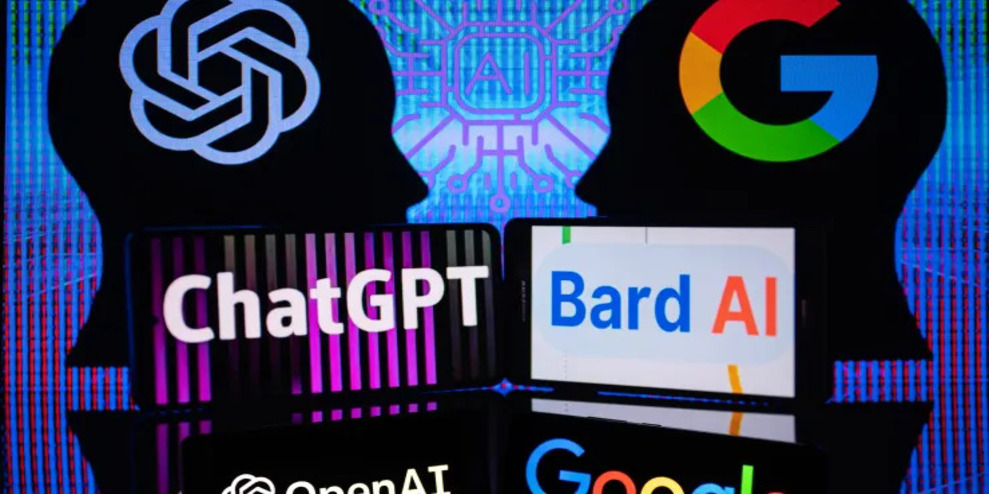Since “google” entered our vocabulary as a synonym for “search,” Google’s dominance in the search market has seemed unshakable, making the very idea of competition between search engines seem unlikely. But the entrance of generative AI tools like ChatGPT — developed by OpenAI in partnership with Microsoft — has ignited the potential for a competitor to knock Google’s capabilities off the top of the search pyramid.
Microsoft’s new Bing Chat, which integrates the same AI technology that powers the ChatGPT bot, is already generating curiosity, controversy, and a long waitlist of would-be users. Google’s parent company, Alphabet, has also developed its own AI chatbot, Bard. The future success and impact of these new technologies are very much open questions, so we turned to our expert panelists for their responses to this statement: The use of generative AI will restore competition in search.
Agree
Nearly two-thirds of our panelists (60%) agree at some level that generative AI will spark competition in search — the possibility of which is sparking some excitement. “Absolutely! Whereas Google appeared to have a nearly unassailable position in search just a few months ago, now it is abundantly clear that generative AI is going to be a game changer for search,” Melissa Schilling of New York University writes. “For years, Microsoft has been playing catch-up with Google in search. Generative AI may finally be the technology breakthrough that upsets the competitive order,” echoes Kathleen Eisenhardt of Stanford University. Joel Waldfogel of the University of Minnesota shares a similar sentiment: “Bing may well go from a nonentity to a product that many people use.”
Wharton’s Daniel Levinthal introduces another angle on search competition: “The more difficult question is whether this mode of search challenges aspects of the revenue model of search. Does keyword-based advertising become less effective?” Noting that generative AI may allow for differentiation in search, UCLA’s Olav Sorenson points out that “it might be hard to monetize (at least through advertising).” Jin Li of Hong Kong University writes, “One possibility is that generative AI will make the network effect less important — that is, the number of searches will become less critical for the accuracy of the search engine.”
Neither Agree nor Disagree
Just 10% of panelists neither agree nor disagree that generative AI will renew search competition, noting Google’s established dominance. While new players may threaten Google’s position and increase market competition, writes Annamaria Conti of IE University, “incumbents might restore market concentration through acquisitions.” Regardless of the outcome, generative AI has introduced a possible predicament, notes Stanford’s Erik Brynjolfsson: “The fact that it’s even a serious possibility is the biggest challenge Google has faced in over a decade.”
Disagree
About a third (30%) of our panelists disagree with this month’s statement. Ivan Png of the National University of Singapore expressed doubt that Google’s search dominance will change. “Google’s huge advantage is the knowledge base that it has accumulated and continues to accumulate from the collective wisdom of users that is contributed (likely unknowingly) by clicking” — an advantage that generative AI can’t replicate, he contends. And Harvard Business School’s Shane Greenstein writes, “The competitive impact will be incremental at best, because so much search takes place on mobile devices, where long explanations have less value.”
London Business School’s Olenka Kacperczyk notes that it will take time for would-be competitors to develop safe, high-quality AI chatbots and introduce them to the market. “Importantly, this could give Google time to catch up and develop a more sophisticated product with better features,” she says. “In short, it may not be as much of a first-mover advantage for Microsoft as it appears.”
ABOUT THE MIT SMR STRATEGY FORUM
Each month, the MIT SMR Strategy Forum poses a single question to our panel of experts in the fields of business, economics, and management. Panelists are asked to agree or disagree with a prediction and provide a brief explanation for their response.
This page allows readers to engage with the results of each survey. You can see the share of panelists who agree or disagree with each prediction, how confident they feel about their answers, and the thinking behind their responses. To explore individual panelists’ thought processes about each question, click through to their voting history page. Readers can also submit their own suggestions for future topics to smr-strategy@mit.edu.
ENDS
—
This article first appeared https://sloanreview.mit.edu
Seeking to build and grow your brand using the force of consumer insight, strategic foresight, creative disruption and technology prowess? Talk to us at +971 50 6254340 or engage@groupisd.com or visit www.groupisd.com/story


